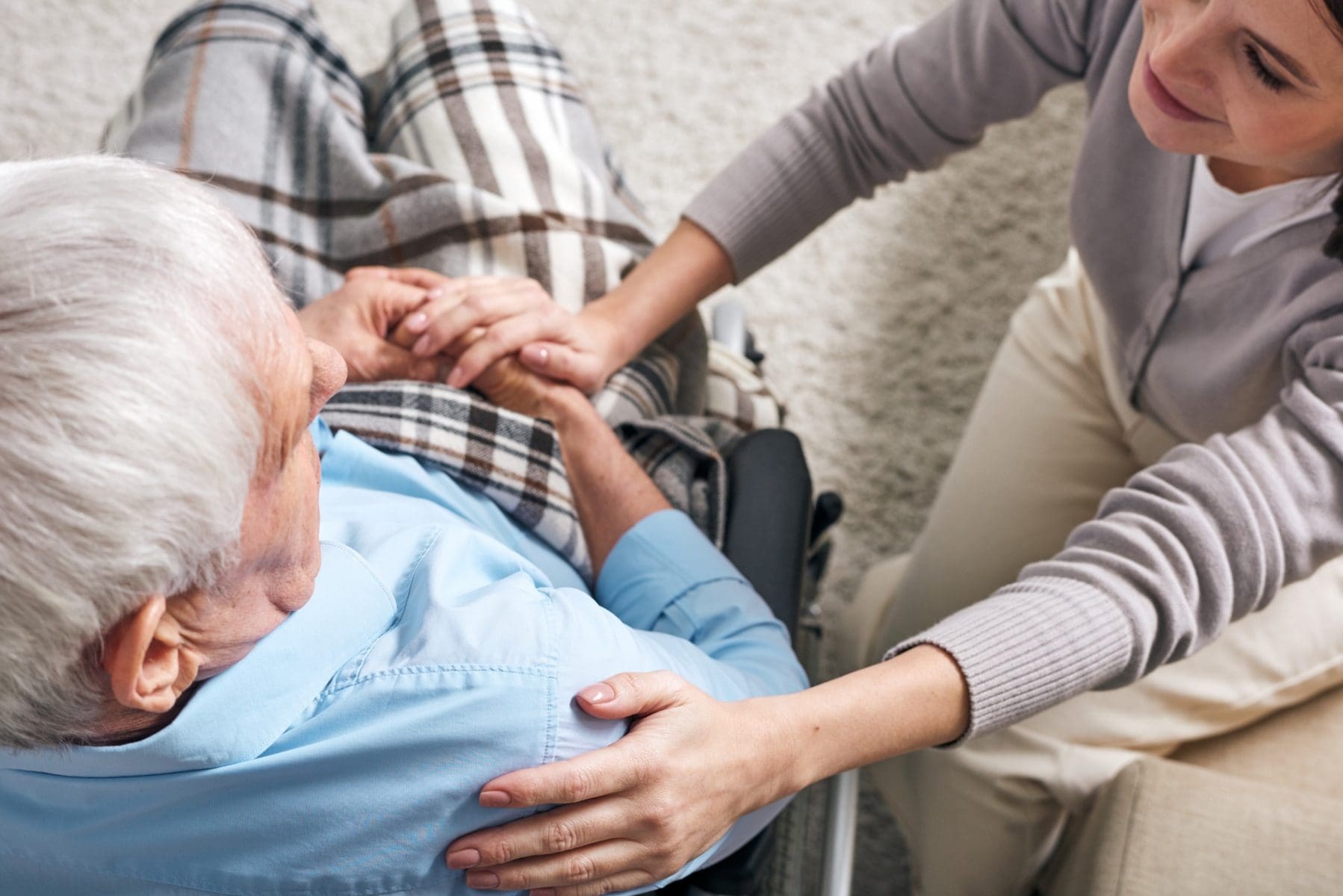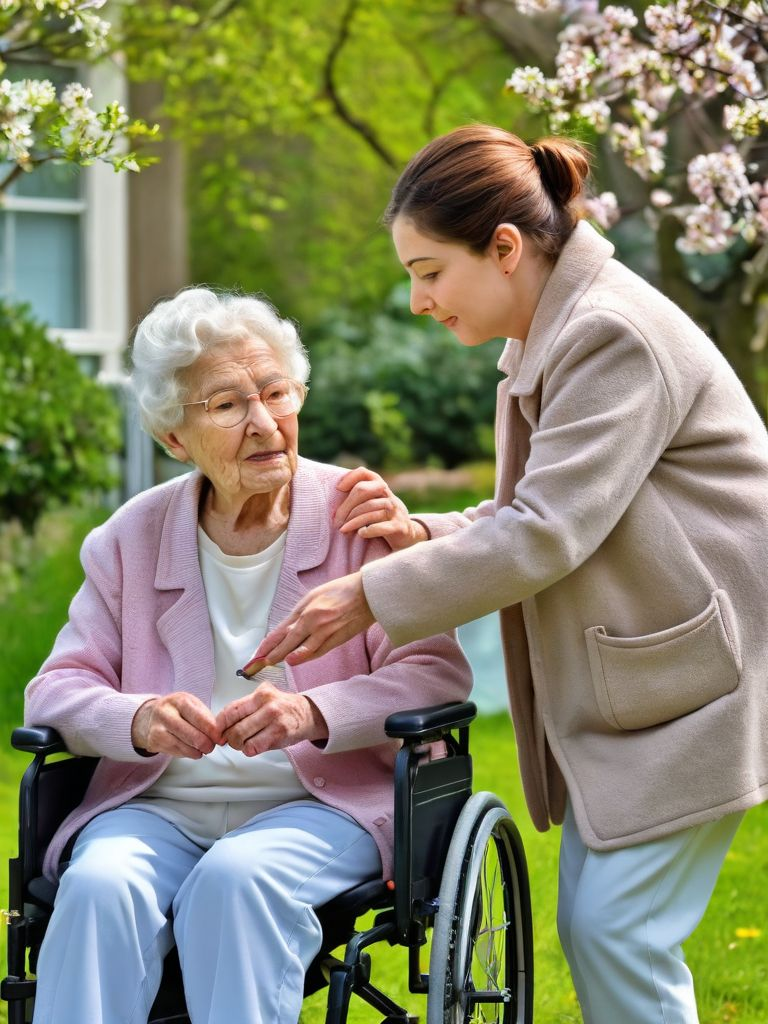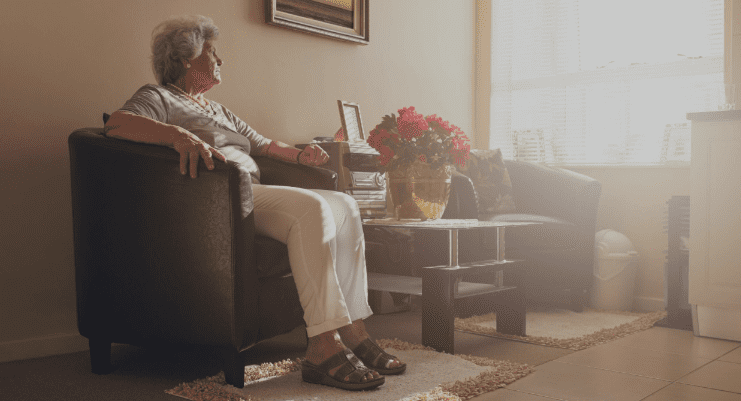
Unveiling How a Caregiver Agency Improves the Quality of Life for Seniors
June 6th, 2025Caregiver Agency, Companion Caregiver, Elderly Care,
Do you have an elderly person in your home who needs a supportive hand for almost all the day-to-day tasks? Having a caregiver at home will help the senior member with all the essential tasks and provide extensive care to improve their quality of life. You can choose a reputable caregiver agency with experienced professionals to offer your aged parents or other senior family members the best possible care.
In this blog, we will elaborate on how a caregiver agency improves the quality of life for seniors in Greenwich.
Exploring the Role of a Caregiver in Elevating the Elderly People’s Quality of Life
Assists with Physical Activities
As people age, they encounter numerous challenges with daily tasks. They often required someone to support them in moving around and even when going to the washroom. This is where a caregiver comes into play, by providing extensive support for everyday tasks for the senior member. Our professional caregivers have years of experience and knowledge in helping aged people with bathing, dressing, grooming, and mobility.
Offers Extensive Emotional Support
A senior member in your home needs the most emotional support than the rest of your family members. Sometimes, it becomes hard for other family members to spend some time with the elderly people due to many tasks and their daily routine. A professional caregiver spends the most hours in a day with the senior member and provides extensive emotional support to help them maintain social connections and keep their minds active.
Give the Aged People a Sense of Independence
Due to physical limitations and a lack of confidence, the senior members are often dependent on others, which affects their emotional health significantly. Most of the time, these members isolated themselves. Our expert caregivers give them a sense of independence by creating personalized care plans, ensuring seniors feel valued and appreciated.
Provide Support to Families
Handling elderly people can be stressful for the rest of your family members. A caregiver provides extensive care for the senior member to reduce the stress on other family members. The caregivers also give family members peace of mind by assuring exceptional support for their loved ones.
In a Nutshell
A caregiver agency helps senior persons in various ways by providing expert caregivers for them. Our senior assistance services are curated to make quality-of-life changes for elderly people. If you also need a caregiver for your loved one, don’t hesitate to contact us directly.
Creating an Enduring Legacy: Leaving Positive Mark on the World
December 3rd, 2024Caregiver Employment, Companion Caregiver, Companion Senior Care, Uncategorized,
Building a legacy is a fulfilling accomplishment for seniors. It takes on additional significance as they strive to leave behind a lasting impact on their loved ones, community, and the world. In this article, we will explore 20 ways a senior can build a legacy, ensuring their mark will endure for generations to come.
Document Personal History:
Documenting personal history is a meaningful way to preserve our unique life experiences for future generations. By writing a memoir or recording personal stories, we create a rich tapestry of memories that can be cherished and learned from for years to come.
To start documenting your personal history, begin by setting aside dedicated time to reflect on your life. Consider significant events, anecdotes, and moments that shaped you as an individual. Jot down these memories, capturing as many details as possible. Recalling specific conversations, emotions, and sensory experiences will add depth and authenticity to your narrative.
Next, organize your memories into a logical structure. You can choose to write a chronological account of your life, focusing on each period separately, or organize them thematically, exploring specific aspects of your life in different chapters.
As you begin writing, be vulnerable and honest. Share your triumphs, challenges, and the valuable lessons you’ve learned along the way. This authenticity will help your readers connect with your story and understand the human experience on a deeper level.
Remember to incorporate vivid descriptions to bring your memories to life. Engage the senses, paint mental images, and provide contextual details to transport your readers back in time.
To add depth and perspective, consider including the important relationships in your life. Reflect on how these connections influenced your journey and shaped you into the person you are today. Sharing anecdotes about your loved ones will not only honor their place in your life but also provide future generations with a glimpse into the dynamics of their ancestors.
Alternatively, if writing isn’t your preferred medium, consider recording your personal stories using audio or video. Encourage loved ones to participate in the conversation, asking about their memories and perspectives. This collaborative approach will result in a more comprehensive and nuanced account of your personal history.
Mentorship Programs:
Mentorship programs offer a valuable opportunity for individuals to share their knowledge and wisdom with younger generations. By participating in these programs, mentors can make a profound impact on the lives of their mentees, passing on the lessons they have learned over a lifetime.
To become an effective mentor, start by identifying your areas of expertise and passion. Consider the skills and experiences you have gained throughout your life that could benefit others. Once you have a clear understanding of what you have to offer, seek out mentorship programs that align with your interests and values.
Establishing a strong foundation of trust and open communication is crucial in any mentorship relationship. Take the time to get to know your mentee on a personal level, understanding their goals, aspirations, and challenges. Actively listen to their concerns and provide a non-judgmental space for them to share their thoughts.
As a mentor, it is essential to create a supportive and nurturing environment for your mentee. Offer guidance, encouragement, and constructive feedback to help them navigate their personal and professional paths. Share your own experiences, both successes and failures, to help them gain perspective and learn from your journey.
While it is essential to offer guidance and support, remember that mentorship is a two-way street. Encourage your mentee to actively participate in their own personal and professional growth. Help them set goals, hold them accountable, and provide resources or connections that can aid them on their journey.
Lastly, be patient and understanding. Building relationships and personal growth take time. Be available and committed to the mentorship process, offering ongoing support as needed.
Creating an Enduring Legacy: Leaving Positive Mark on the World
December 3rd, 2024Companion Caregiver, Janitorial Service, Spring Activities, Uncategorized,
Creating an Enduring Legacy: Leaving a Positive Mark on the World and Those Close to Your Heart
In life’s journey, the true essence of your existence is defined not by the breaths you take but by the impactful moments and lasting legacies you create. This guide from Polish Care Services is designed to empower you with insightful strategies for imprinting your name in history. It ensures that your influence and love resonate across generations, leaving an indelible mark on time.
Create Beauty
Your life is a canvas, and your actions are the brushstrokes that define its masterpiece. Engaging in artistic endeavors, be it painting, sculpture, or music, allows you to express your innermost thoughts and beliefs. It’s not just about creating something beautiful; it’s about embedding your values and vision into something tangible. Imagine a future where your art becomes a source of inspiration, a symbol of resilience, or a beacon of hope for others. That’s the power of creativity – it transcends time and space, allowing your essence to flourish eternally.
Design a Legacy of Integrity
Imagine starting a business that not only achieves financial success but also upholds the highest ethical standards. To start a business, you should begin with market research, create a solid business plan, secure financing, and obtain any necessary licenses and permits. As you register your company, consider how an LLC in CT (Limited Liability Company) can provide benefits like limited liability protection, tax advantages, and operational flexibility. It’s a testament to your commitment to doing business right, setting a standard for others to follow. By adopting ethical practices, your business legacy becomes a blueprint for future entrepreneurs, demonstrating that success and integrity can coexist.
Share What You Know
Your knowledge and experiences are invaluable, and sharing them through mentorship can change lives. Teaching and guiding others is not just about transferring skills; it’s about instilling confidence and igniting passions. The impact of your mentorship can create ripples that extend far beyond your immediate circle, shaping the leaders and innovators of tomorrow.
Drive Positive Change in Your Community
Imagine the legacy you can create by actively participating in community projects. Whether it’s building a park, organizing a food drive, or advocating for social change, your involvement contributes to a stronger, healthier community. Your actions become a testament to your commitment to societal betterment, inspiring others to take up the mantle of community service.
Be a Champion for the Environment
Your concern for the planet can manifest in supporting environmental conservation efforts. Whether it’s advocating for sustainable practices, participating in reforestation projects, or reducing your carbon footprint, your dedication to environmental stewardship ensures a healthier planet for future generations. Your legacy in this realm becomes a clarion call for continued ecological responsibility.
Nurture Bonds With Family and Relationships
At the heart of your legacy are the relationships you nurture. The time, love, and energy you invest in your family and friends create bonds that outlive any material accomplishment. These relationships form the cornerstone of your legacy, shaping the lives of those you hold dear and echoing through their actions and memories.
Give Back
Engaging in charitable work or establishing a charity is a profound way to make a lasting impact. Your contributions to the causes you care about create a ripple effect, bringing about positive change and offering support to those in need. This philanthropic endeavor speaks volumes about your character and values, cementing your legacy as one of generosity and compassion.
Preserve Your Life’s Work
In an era where technology reigns supreme, digitizing your legacy is a strategic move. Converting important documents into PDFs ensures that your contributions, whether they’re written works, business records, or personal memoirs, remain accessible and intact. Tools like a PDF rotator enhance the readability and presentation of these documents. This digital approach to legacy preservation ensures that your life’s work withstands the test of time, becoming a resource and inspiration for future generations.
Your journey through life is a unique opportunity to leave a mark that resonates through time. By nurturing creativity, practicing ethical entrepreneurship, digitizing your legacy, mentoring, engaging in community and environmental efforts, cherishing relationships, and contributing to charitable causes, you create a tapestry of influence that weaves into the fabric of humanity. Remember, the legacy you leave is the life you lead. Make it count.
Healing Power of Meditation: Enhancing Well-being for the Elderly
November 26th, 2024Caregiver Service, Companion Caregiver, Elderly Care,

Preparing for the Holidays with Your Elderly Loved One
November 13th, 2024Companion Caregiver, Companion Senior Care, Elderly Care, In Home Care, Polish Care Services, Preparing for the Holiday,
The holiday season, with its joy and festivities, provides a perfect opportunity to cherish time with family, especially our elderly loved ones. However, for seniors, especially those requiring care, this time can also bring challenges. Here’s a comprehensive guide on how to prepare for the holidays, ensuring they are enjoyable and stress-free for everyone involved, focusing on the essential roles of companion caregivers and the broader scope of elderly care.
Understanding the Needs of Elderly During the Holidays
Health Considerations:
– Medical Needs: Before diving into holiday planning, review your loved one’s health with their healthcare provider. Ensure any necessary adjustments to medication or diet are made to fit the holiday schedule.
– Mobility: Consider how holiday festivities might impact mobility. If your loved one uses mobility aids, ensure they are in good condition.
Emotional and Social Needs:
– Isolation: Holidays can be particularly isolating for seniors. Plans should include ways to engage them socially.
– Memory Issues: For those with cognitive impairments like dementia, routine is key. Introduce holiday changes gradually.
The Role of Companion Caregivers
Companionship:
– Engagement: Companion caregivers can play a pivotal role in keeping seniors engaged. Activities could range from crafting holiday decorations to watching classic holiday movies together.
– Outings: If feasible, outings to see holiday lights or community events can be delightful, with caregivers ensuring safety and comfort.
Support in Daily Activities:
– Meal Preparation: Holiday meals might require different preparations. Caregivers can assist in cooking or adapting recipes to meet dietary needs without losing the festive spirit.
– Personal Care: Ensuring that personal care routines continue amidst holiday busyness is crucial for maintaining health and comfort.
Planning and Execution
Early Start:
– Shopping: Begin shopping early to avoid the last-minute rush, which can be overwhelming for seniors. Online shopping with caregivers can be a fun activity or a necessary convenience.
– Decorations: Involve your loved one in decorating to the extent they can. This not only makes them feel included but can also stimulate memory and cognitive functions.
Safety First:
– Home Environment: Ensure the home is safe for holiday activities. Secure decorations, manage cords to prevent tripping, and consider the placement of the Christmas tree or menorah to avoid fire hazards.
– Emergency Plan: Have an emergency plan in place. Know where the nearest hospital is, have emergency numbers accessible, and ensure caregivers are briefed on any specific health concerns.
Celebrating Together
Adapting Traditions:
– Simplifying: Sometimes, traditional celebrations might need scaling down. Focus on what truly matters; for instance, a small, intimate gathering might be more comforting than a large party.
– Inclusion: If your loved one can’t participate in every event, find ways to include them, like video calls during family gatherings.
Special Activities:
– Memory Sharing: Encourage storytelling sessions where seniors can share past holiday memories. This not only entertains but also preserves family history.
– Crafts and Cooking: Involve them in holiday crafts or simple cooking tasks they can manage, promoting a sense of contribution and creativity.
Caregiver Support
Respite for Family Caregivers:
– Professional Help: Consider hiring professional care during peak holiday activities to give family caregivers a much-needed break.
– Self-Care: Remind family caregivers to look after their own well-being, ensuring they also enjoy the holidays.
Training and Preparation:
– Handling Emergencies: Ensure caregivers are trained in first aid and know how to manage holiday-specific emergencies like food poisoning or falls.
– Cultural Sensitivity: If your traditions involve specific cultural practices, ensure caregivers are sensitive to these, enhancing the experience for everyone.
Technology in Elderly Care
Digital Engagement:
– Virtual Gatherings: Use technology to connect with family members who can’t visit in person. Caregivers can assist in setting up video calls or teaching seniors how to use these tools.
– Health Monitoring: Utilize health apps or devices to keep track of vitals or medication schedules, which can be particularly helpful during the chaotic holiday season.
Post-Holiday Care
Recovery and Reflection:
– Rest: After the festivities, ensure there’s ample time for rest. The excitement can be exhausting for the elderly.
– Review: Reflect on what worked well during the holidays and what could be improved for future celebrations, keeping notes for next year.
Conclusion
Preparing for the holidays with an elderly loved one involves a delicate balance of celebration, care, and safety. By leveraging the support of companion caregivers, embracing senior care practices, and adapting to the unique needs of elderly care, you can create a holiday season that is not only memorable but also nurturing. This time of year can become a cherished period where love, care, and tradition intermingle, providing warmth and joy to all, especially those who might need a little extra attention during the festive times. Remember, the goal isn’t just to celebrate, but to do so in a way that honors and includes our elderly loved ones in every possible way. Polish Care Services provide non-medical assistance to seniors and disabled to enjoy quality of life, please contact us for more information.

Springtime Activities For Seniors
April 5th, 2024Companion Caregiver, Elderly Care, In Home Care, Senior Services, Spring Activities,

Reminiscent Therapy Activities to Support Alzheimer’s Clients
December 3rd, 2023Alzheimer's Care, Caregiver Service, Companion Caregiver, Polish Care Services,
Introduction:
Alzheimer’s disease poses unique challenges for both individuals diagnosed with the condition and their loved ones. As cognitive abilities decline, it becomes crucial to explore therapeutic approaches that can preserve memories, enhance communication, and promote overall well-being. Reminiscent therapy activities offer a promising avenue for engaging individuals with Alzheimer’s in meaningful and enjoyable experiences. In this blog, we will explore various reminiscent therapy activities designed to support your loved ones with Alzheimer’s, fostering connection, and enriching their daily lives.
Creating a Memory Box:
A memory box is a tangible and personal keepsake filled with items that hold significance and evoke memories for your loved one. Gather items such as photographs, mementos, and objects that represent important moments from their past. As you explore the contents of the memory box together, encourage your loved one to reminisce and share stories associated with each item. This activity not only triggers memories but also facilitates bonding and engagement.
Music Therapy Sessions:
Music has a remarkable impact on memory recall and emotional well-being. Compile a playlist of songs from your loved one’s youth or significant events in their life. Play these songs during dedicated music therapy sessions, allowing your loved one to immerse themselves in the familiar melodies and lyrics. You may notice their mood improve, and they may even begin to sing along or tap their feet in rhythm. Music therapy is particularly effective in stimulating memory retrieval and promoting emotional connections.
Storytelling Sessions:
Storytelling is a powerful way to share and preserve personal narratives. Sit down with your loved one and encourage them to recount stories from their past. You can also provide prompts by showing photographs or asking questions related to significant events or people in their life. As they share their stories, listen attentively and engage in meaningful dialogue. This activity not only promotes memory recall but also strengthens the bond between you and your loved one.
Reminiscent Jigsaw Puzzles:
Jigsaw puzzles designed specifically for reminiscent therapy can be a fun and stimulating activity for individuals with Alzheimer’s. Look for puzzles that depict nostalgic scenes or historic events relevant to your loved one’s past. Work on the puzzle together, discussing the images and reminiscing about associated experiences. This activity enhances cognitive function, hand-eye coordination, and provides a sense of accomplishment upon completion.
Photo Albums and Scrapbooks:
Browse through old photo albums or create a scrapbook filled with pictures documenting your loved one’s life. Label the photographs with names, dates, and brief descriptions to aid memory recall. As you flip through the pages, encourage your loved one to reminisce about the events and people captured in the photos. Sharing and documenting memories through visual aids can have a profound impact on maintaining connections and stimulating cognitive abilities.
Gardening Therapy:
Engaging in gardening activities can have therapeutic benefits for individuals with Alzheimer’s. Choose plants that are easy to care for and involve your loved one in tasks such as planting, watering, and tending to the garden. The sensory stimulation of touch, smell, and sight associated with gardening can evoke positive memories and improve mood. Spending time in nature and nurturing living plants fosters a sense of purpose and accomplishment.
Reminiscent therapy activities provide valuable opportunities to connect with loved ones living with Alzheimer’s, promoting memory recall, communication, and emotional well-being. Each activity mentioned in this blog can be tailored to suit your loved one’s preferences and abilities. Remember to approach these activities with patience, understanding, and a focus on creating positive experiences. By engaging in thoughtful reminiscent therapy activities, you can enhance your loved one’s quality of life and create lasting memories together.
Polish Care Services companion and assistants provides non-medical assistance whether live in or hourly to keep seniors safe in their home.
Credit: Jamie Ross

Balancing Elderly Care, Work, and Self: Practical Caregiver Tips
October 31st, 2023Caregiver Service, Companion Caregiver, Elderly Care, in home care assistance, Polish Care Services,
Managing the multiple roles that come with being a caregiver who provide elderly care for loved ones, an employee, and an individual with personal needs can feel like walking on a tightrope. The challenge intensifies when trying to excel in each area without compromising the others.
Along with ensuring the welfare of the person you’re caring for, you must foster your own mental and physical well-being. This article, courtesy of Polish Care Services, shares actionable tips for any caregivers navigating the intricacies of work, caregiving, and personal life.
Prioritizing Essential Tasks
When juggling roles as varied as caregiving, working, and personal development, prioritization becomes a crucial skill. Focus on tasks that are time-sensitive and essential to the well-being of your elderly loved one.
Prioritizing allows you to allocate your energy and time more efficiently, ensuring that you’re not overwhelmed by less important tasks. You can act more decisively and effectively when you know what needs immediate attention.
Acquiring an Online Degree
The juggling act between work and caregiving is complicated. Still, it doesn’t mean your career should come to a halt. Virtual learning has made it feasible for caregivers to consider furthering their education.
Enrolling in top-rated masters in nursing programs online, for instance, can be an excellent way to climb the career ladder while still attending to your caregiving duties. The flexible hours and online modules make it a perfect fit for your stringent schedule.
Implementing a Structured Routine
Life becomes a lot less chaotic with a well-thought-out schedule. Assigning specific time slots for different responsibilities (e.g., caregiving, professional work, personal activities, etc.) will help you maintain a routine. Consistency in following the schedule imparts a sense of discipline and ensures not a single aspect of your life is neglected.
Digitized All Important Documents
The modern world offers plenty of digital solutions that can make a caregiver’s life easier. One such example is using a mobile scanning app to store and share digital documents like legal paperwork. Having all your essential documents in a digital format makes them easily accessible and shareable, which can be a real time-saver in emergency situations.
Focusing on Personal Health
Caregiving is a demanding job, both physically and emotionally. But no caregiver who provides elderly care or other task can offer the best care if they’re not in their best shape. Maintaining a healthy lifestyle is non-negotiable. From getting enough sleep to eating balanced meals and exercising regularly, personal health should never take a back seat.
Utilizing Organizational Tools
Keep your tasks and responsibilities neatly organized by employing the use of digital tools or traditional planners. An organized approach simplifies the coordination of caregiving duties, work commitments, and personal activities. Calendars or task management tools can be excellent allies in staying organized, enabling you to fulfill your roles more efficiently and with less stress.
Reaching Out for Support
It’s okay to ask for help. Elderly care caregiving is often emotionally and physically draining, and doing it all on your own is impractical and detrimental to your well-being.
Reach out to friends, family, or community support groups to share responsibilities or emotional burdens. No one is an island, and a little help can go a long way in reducing your stress levels.
You might also benefit from hiring people to help with your caregiving duties. Polish Care Services offers a range of cleaning and caregiving services, all of which we carry out with compassion and professionalism.
Retaining a Sense of Individuality
Don’t forget to enjoy life amid the hustle and bustle. Your hobbies and personal interests are not frivolous but essential for your mental well-being. They offer an avenue to detach, relax, and rejuvenate. Setting aside time for activities that bring you joy can remarkably improve your mood and efficiency, making you a happier and thus better caregiver.
Summary
Striving to excel as a caregiver, a working professional, and an individual with a personal life may seem like a Herculean task, but it’s certainly possible. You can successfully balance these multifaceted roles by prioritizing tasks, enhancing your skills through education, adhering to a structured schedule, digitizing documents, staying organized, and focusing on self-care. Remember that a balanced life is not a myth but a realistic goal; the tips above can be your roadmap to achieving it.
Credit: June Duncan

58 Ways To Keep Seniors Safe In Their Home
October 16th, 2023aging in place, Caregiver Service, Companion Caregiver, In Home Care, in home care assistance, Senior Care Services,
Many seniors prefer to live independently in their own homes for the comfort, satisfaction of familiarity and self-reliance; however, this can also pose some risks and challenges. To ensure their safety and comfort in their home, here are 58 ways that can help seniors stay safe in their homes:
– Install smoke detectors and carbon monoxide detectors on every floor and test them regularly.
– Keep a fire extinguisher in the kitchen and other areas where fires may occur.
– Avoid using candles, matches, or lighters near flammable materials or curtains.
– Replace frayed or damaged cords and plugs of electrical appliances and devices.
– Use surge protectors and avoid overloading outlets or extension cords.
– Turn off appliances and devices when not in use or before going to bed.
– Keep a flashlight and extra batteries in an accessible location in case of a power outage.
– Install grab bars and non-slip mats in the bathroom, especially near the bathtub, shower, and toilet.
– Use a shower chair or bench if standing for long periods is difficult or risky.
– Adjust the water heater temperature to prevent scalding or burns.
– Keep medications in their original containers and store them in a cool, dry, and secure place.
– Dispose of expired or unused medications properly and safely.
– Follow the instructions and dosages of your medications and supplements carefully and consult your doctor or pharmacist if you have any questions or concerns.
– Use a pill organizer or dispenser to help you remember when to take your medications and supplements.
– Keep a list of your medications, allergies, medical conditions, and emergency contacts in your wallet or purse and on your refrigerator door.
– Wear a medical alert bracelet or necklace if you have a chronic or serious condition that may require immediate attention.
– Keep a first aid kit stocked with bandages, antiseptics, pain relievers, and other essentials in an accessible location.
– Seek medical attention promptly if you experience any signs or symptoms of a stroke, heart attack, infection, or other serious condition.
– Schedule regular check-ups and screenings with your doctor and dentist and follow their recommendations for preventive care and treatment.
– Get vaccinated against seasonal flu, pneumonia, shingles, COVID-19, and other diseases that may affect seniors more severely.
– Eat a balanced and nutritious diet that meets your dietary needs and preferences.
– Drink plenty of water and fluids to stay hydrated and avoid dehydration.
– Limit your intake of alcohol, caffeine, salt, sugar, and processed foods that may affect your blood pressure, blood sugar, cholesterol, or weight.
– Take vitamin D and calcium supplements to support your bone health and prevent osteoporosis.
– Exercise regularly to maintain your strength, flexibility, balance, and endurance. Choose activities that you enjoy and are suitable for your fitness level and abilities.
– Consult your doctor before starting a new exercise program or changing your existing one.
– Warm up before exercising and cool down after exercising to prevent injuries or soreness.
– Wear appropriate clothing, footwear, and equipment when exercising.
– Avoid exercising outdoors when the weather is too hot, cold, humid, or polluted.
– Stay indoors or seek shade when the UV index is high to prevent sunburns or skin cancer.
– Wear sunscreen, sunglasses, hat, and protective clothing when exposed to the sun.
– Avoid smoking or exposure to secondhand smoke that may increase your risk of lung cancer, COPD, heart disease, stroke, and other conditions.
– Manage your stress levels by practicing relaxation techniques such as deep breathing, meditation, yoga, tai chi, or massage.
– Seek professional help if you experience any signs or symptoms of depression, anxiety, dementia, or other mental health issues.
– Stay socially connected with your family, friends, neighbors, community groups, clubs, or organizations that share your interests and hobbies.
– Use technology such as phone calls, video calls, emails, text messages, social media, or online platforms to communicate with your loved ones and access information and services.
– Learn new skills or pursue new hobbies that challenge your mind and keep you engaged and stimulated.
– Play games or do puzzles that improve your memory, concentration, logic, or creativity.
– Read books or magazines that expand your knowledge or entertain you.
– Watch movies or shows that make you laugh or inspire you.
– Listen to music or podcasts that soothe you or motivate you.
– Keep a journal or diary that helps you express your thoughts and feelings.
– Volunteer for a cause or organization that aligns with your values and passions.
– Adopt a pet or plant that provides you with companionship and responsibility.
– Review your finances and budget and plan for your future needs and goals.
– Seek advice from a financial planner, lawyer, or accountant if you need help with managing your money, assets, or taxes.
– Update your will and estate plan and inform your family or beneficiaries of your wishes.
– Review your insurance policies and coverage and make any changes or adjustments as needed.
– Declutter your home and belongings and donate, sell, or discard anything that you no longer need or use.
– Organize your home and belongings and label, store, or display them in a way that makes them easy to find and access.
– Make your home more accessible and comfortable by installing ramps, rails, lifts, or other devices that help you move around or reach things.
– Make your home more energy-efficient and eco-friendly by using LED bulbs, smart thermostats, solar panels, or other products that reduce your electricity consumption or carbon footprint.
– Make your home more secure and safe by installing locks, alarms, cameras, or other systems that deter intruders or alert you of any threats.
– Hire a professional or ask a friend or family member to help you with any home repairs, maintenance, or improvement projects that you cannot do yourself.
– Consider hiring a caregiver, housekeeper, gardener, chef, homemaker or companion or other service provider to help you with any personal care, household chores, or other tasks that you need assistance with.
– Consider using a delivery service, online shopping, or curbside pickup to order groceries, meals, medications, or other items that you need or want.
– Consider using public transportation, ride-sharing, or taxi services to get around if you do not drive or have a car.
– Consider joining a senior center, assisted living facility, or retirement community if you need more social interaction, support, or care.
This is an extensive list to ensure the safety of seniors in their home, some of which may have already been utilized however there are additions help to enhance the safety of our loved ones. Please call Polish Care Services for in home care assistance for seniors.

How to Help Your Elderly Parents Age in Place
August 9th, 2023aging in place, Companion Caregiver, Polish Care Services, Senior Care Services,

Many older adults prefer to stay in their own homes as they age, rather than move to a senior living facility or another location. This is known as age in place, and it can have many benefits for seniors, such as maintaining their independence, comfort, and familiarity. However, aging in place also comes with some challenges and risks, such as safety hazards, isolation, and health issues. If you have elderly parents who want to age in place, you may wonder how you can support them and ensure their well-being. Here are some tips and resources to help you help your parents age in place successfully and safely.
Assess their needs and abilities
The first step to helping your parents age in place is to assess their current and future needs and abilities. You can do this by observing how they perform their daily activities, such as bathing, dressing, cooking, cleaning, and managing their medications. You can also talk to their doctors about their health conditions and how they may affect their functioning and quality of life. Based on this assessment, you can identify the areas where your parents may need some assistance or modifications to continue living at home.
Make their home safe and accessible
One of the most important aspects of aging in place is making sure that your parents’ home is safe and accessible for them. This may involve some home modifications or repairs, such as installing grab bars, ramps, handrails, nonslip mats, smoke detectors, and emergency alert systems. You can also declutter their home and remove any tripping hazards, such as loose rugs, cords, or furniture. You can find more tips on how to make your home safe and accessible while aging in place here.
Hire professional caregivers or services
Depending on your parents’ needs and preferences, you may want to hire some professional caregivers or services to help them with some tasks or provide some companionship. For example, you can hire a personal service attendant to assist your parents with bathing, dressing, grooming, or toileting. You can also hire a home health nurse to provide medical care, such as wound care, injections, or blood pressure monitoring. You can also hire a homemaker to help with household chores, such as cleaning, laundry, or grocery shopping, a companion to be a friend, conversation and play games your loved one likes. You can also hire a meal delivery service to bring nutritious meals to your parents’ home.
Build a network of support
Another key factor for successful aging in place is having a strong network of support for your parents. This network can include family members, friends, neighbors, volunteers, or community organizations that can provide emotional, social, or practical support for your parents. For example, you can ask your relatives or friends to check on your parents regularly or help them with some errands. You can also encourage your parents to join a senior center or a faith group where they can socialize and participate in activities. You can also connect your parents with some resources and organizations that can offer them assistance or guidance on various issues related to aging in place. You can find more information on how to build a network of support for aging in place here.
Plan for the future
Finally, it is important to plan for the future as your parents age in place. This means having honest and respectful conversations with your parents about their wishes and expectations for their care and living arrangements as they get older. It also means preparing the necessary legal and financial documents that can protect your parents’ rights and interests in case they become incapacitated or pass away. These documents may include a will, a power of attorney, a health care proxy, an advance directive, and a living trust. You can find more information on how to plan for the future as you age in place here.
Aging in place can be a rewarding and fulfilling option for many seniors who want to stay in their own homes as they grow older. However, it also requires some planning and preparation to ensure that they are safe, comfortable, and happy. By following these tips and using these resources, you can help your elderly parents age in place successfully and safely.
Polish Care Services agency can help with assigning live in and hourly personal services attendant to assist with ensuring quality of life while your loved ones enjoy home. Please contact 860-255-8278 in Connecticut and 941-212-0310 in Florida to see how they can assist.
Credit: Vanessa Hoffman
